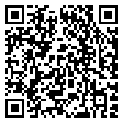技术经济 第 42 卷 第 8 期
[24] 魏巍,刘贝妮,凌亚如,2022. 平台算法下数字零工职业污名感知对离职倾向的影响[J]. 中国人力资源开发,39(2):18‑30.
[25] 魏翔宇,于广涛,2021. 企业导师指导如何激发徒弟创新——基于认知和情感的双路径机制研究[J]. 经济管理,43
(2):123‑138.
[26] 徐淑一,陈平,2017. 收入、社会地位与幸福感——公平感知视角[J]. 管理科学学报,20(12):99‑116.
[27] 徐延辉,刘彦,2020. 居住环境、社会地位与老年人健康研究[J]. 厦门大学学报(哲学社会科学版),(1):52‑59.
[28] 姚烨琳,张海东,2022. 职业特征、主观社会地位与自由职业者的工作满意度[J]. 社会科学战线,(10):238‑246.
[29] 叶龙,耿燕各,郭名,2019. 明星技能人才创造力的影响机制——基于和谐型工作激情的中介作用[J]. 技术经济,38
(8):40‑47.
[30] 叶龙,刘园园,郭名,2018. 包容型领导对技能人才工匠精神的影响[J]. 技术经济,37(10):36‑44.
[31] 叶龙,刘园园,郭名,2020. 传承的意义:企业师徒关系对徒弟工匠精神的影响研究[J]. 外国经济与管理,42(7):95‑107.
[32] 于桂兰,张诗琳,2022. 亲社会行为对员工创新绩效的双刃剑效应——基于情绪的中介作用及领导与成员交换关系
的调节作用[J]. 科技管理研究,42(20):210‑218.
[33] 张昊民,孟洪林,刘春秀,等,2022. 职场负面八卦会抑制员工越轨创新行为吗?一个被调节的链式中介模型[J]. 中
国人力资源开发,39(7):26‑40.
[34] 张剑,宋亚辉,叶岚,等,2014. 工作激情研究:理论及实证[J]. 心理科学进展,22(8):1269‑1281.
[35] 赵琛徽,陈子萌,2021. 职场地位对工匠技能人才职业使命感的影响机制研究[J]. 管理学报,18(11):1640‑1648.
[36] 赵靖芝,2020. 经济新常态下北京市高端制造业人才培养研究[J]. 科学管理研究,38(1):89‑93.
[37] 周扬,2022. 社会阶层定位的主观感知模式——基于社会阶层心理学视角的解释[J]. 社会学评论,10(5):220‑237.
[38] 周晔,黄旭,2020“. 艰苦工作”从业者职业污名应对策略研究:量表开发及预测效应[J]. 中国人力资源开发,37(9):38‑56.
[39] 朱永跃,过旻钰,陈雯,2021. 传统与现代交融视角下制造业员工工匠精神量表开发及应用[J]. 科技进步与对策,38
(9):124‑133.
[40] 朱永跃,马媛,欧阳晨慧,等,2022. 家长式领导与制造企业员工工匠精神:工作卷入和团队积极情绪氛围的影响
[J]. 系统管理学报,31(1):89‑103.
[41] ADLER N E,EPEL E S,CASTELLAZZO G,et al,2000. Relationship of subjective and objective social status with psychological
and physiological functioning:Preliminary data in healthy white women[J]. Health Psychology,19(6):586‑592.
[42] AUTIN K L,DOUGLASS R P,DUFFY R D,et al,2017. Subjective social status,work volition,and career adaptability:A
longitudinal study[J]. Journal of Vocational Behavior,99:1‑10.
[43] AVEY J B,AVOLIO B J,CROSSLEY C D,et al,2009. Psychological ownership:Theoretical extensions,measurement
and relation to work outcomes[J]. Journal of Organizational Behavior,30(2):173‑191.
[44] BISSING‑OLSON M J,IYER A,FIELDING K S,et al,2013. Relationships between daily affect and pro‑environmental behavior
at work:The moderating role of pro‑environmental attitude[J]. Journal of Organizational Behavior,34(2):156‑175.
[45] BRICKSON S,2000. The impact of identity orientation on individual and organizational outcomes in demographically diverse
settings[J]. Academy of Management Review,25(1):82‑101.
[46] CHI N W,HAN T S,2008. Exploring the linkages between formal ownership and psychological ownership for the organization:
The mediating role of organizational justice[J]. Journal of Occupational and Organizational Psychology,81(4):691‑711.
[47] DAI Y D,ZHUANG W L,LU S C,et al,2020. Work engagement or job burnout? Psychological ownership amongst the
employees of international tourist hotels[J]. Tourism Review,76(6):1243‑1259.
[48] FERNET C,LAVIGNE G,VALLERAND R,et al,2014. Fired up with passion:Investigating how job autonomy and
passion predict burnout at career start in teachers[J]. Work and Stress,28:270‑288.
[49] FURBY L,1991. Understanding the psychology of possession and ownership:A personal memoir and an appraisal of our
progress[J]. Journal of Social Behavior & Personality,6(6):457‑463.
[50] HORWOOD M,MARSH H W,PARKER P D,et al,2021. Burning passion,burning out:The passionate school principal,
burnout,job satisfaction,and extending the dualistic model of passion[J]. Journal of Educational Psychology,113(8):1668‑1688.
[51] JING J,YAN J,2022. Study on the effect of employees’perceived organizational support,psychological ownership,and turnover
intention:A case of China’s employee[J]. International Journal of Environmental Research and Public Health,19(10):35627553.
[52] KHALID B,IQBAL R,HASHMI S D,2020. Impact of workplace ostracism on knowledge hoarding:Mediating role of
defensive silence and moderating role of experiential avoidance[J]. Future Business Journal,6(1):1‑10.
[53] KRAUS M W,KELTNER D,2013. Social class rank,essentialism,and punitive judgment[J]. Journal of Personality and
Social Psychology,105(2):247‑261.
[54] KRAUS M W,PIFF P K,MENDOZA‑DENTON R,et al,2012. Social class,solipsism,and contextualism:How the rich
are different from the poor[J]. Psychological Review,119(3):546‑572.
[55] LI K,YU F,ZHANG Y,et al,2023. The effects of subjective social class on subjective well‑being and mental health:A
moderated mediation model[J]. International Journal of Environmental Research and Public Health,20(5):4200.
[56] LIU F,CHOW I H S,ZHANG J C,et al,2019. Organizational innovation climate and individual innovative behavior:
154



